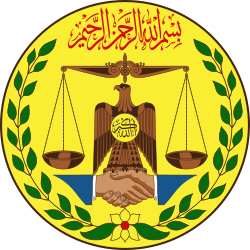2002 Somaliland municipal elections
 From Wikipedia - Reading time: 7 min
From Wikipedia - Reading time: 7 min
| |||||||||||||||||||||||||||||||||||||
| |||||||||||||||||||||||||||||||||||||
 |
|---|
|
|
Municipal elections were held across Somaliland on 15 December 2002. Six political associations fielded 2,368 candidates to contest 379 local council seats in nineteen of Somaliland's twenty-three electoral districts.[1]

Prior to these elections, local government only consisted of a mayor and a councillor both appointed by the Ministry of Interior by the recommendation of the President.[1] These elections would pave way for the establishment of popularly-elected local governments that were directly responsible to local constituencies.[citation needed]
Political associations
[edit]The Constitution of Somaliland stipulated that only three political parties could exist at any one time.[1] As a result, the three associations that gained the largest numbers of local council seats would become the official political parties and enjoyed exclusive legitimacy for the next ten years.[1] A political organisation had to achieve 20% of the vote in at least four of Somaliland's six regions in order to become a national party and contest presidential and parliamentary elections.[2]
The contenders that took part in this process included:[1][3]
- United Peoples' Democratic Party (UDUB) led by President Dahir Riyale Kahin
- Peace, Unity, and Development Party (Kulmiye) headed by Ahmed Mohamed Mohamoud
- For Justice and Development (UCID) led by Faysal Ali Warabe
- Sahan led by Dr Mohamed Abdi Gaboose
- Asad led by Suleiman Mohamoud Adan
- Hormood led by Umar Ghalib
Results
[edit]Over 440,000 people took part in the country's first municipal elections.[4] Results were announced a week later by the National Electoral Commission, with UDUB, Kulmiye and UCID finishing as the top three parties.
| Party | Votes | % | |
|---|---|---|---|
| United Peoples' Democratic Party | 179,389 | 40.76 | |
| Kulmiye | 83,158 | 18.90 | |
| UCID | 49,444 | 11.24 | |
| Sahan | 47,942 | 10.89 | |
| Hormood | 40,538 | 9.21 | |
| ASAD | 39,596 | 9.00 | |
| Total | 440,067 | 100.00 | |
| Source: African Elections Database | |||
Aftermath
[edit]The elections were viewed largely as a success and was an essential step in the transition from a clan-based formed of governance to a democracy.[5]
Political associations that ranked fourth or lower ceased to exist.[5] Although Sahan passed the threshold of receiving 20% of the votes in at least four regions and UCID did not, it was decided that UCID's higher national vote share qualified it to become the third party, a controversial decision.[5][2]
Councillors from the associations that were dissolved were subsequently required to join one of the newly appointed national parties, UDUB, Kulmiye or UCID.[5]
References
[edit]- ^ a b c d e Hersi, Mohamed Farah (29 May 2015). "Confronting the Future of Somaliland's Democracy: Lessons from a Decade of Multi-partyism and the Way Forward". Africa Portal. Retrieved 18 May 2020.
- ^ a b "2002 Local Elections in Somaliland". africanelections.tripod.com. Retrieved 22 May 2020.
- ^ Jhazbhay, Iqbal (19–20 August 2010). "Civil Society & their role in Africa's struggle to deepen democracy: Experiences of Somaliland in the Horn" (PDF). African Participatory Democracy Conference, SACP.
- ^ Woldemariam, Richard Bennet and Michael (11 July 2014). "Nurturing Democracy in the Horn of Africa: Somaliland's First Elections, 2002-2005". Nurturing Democracy in the Horn of Africa: Somaliland's First Elections, 2002-2005.
- ^ a b c d Renders, Marleen (20 January 2012). Consider Somaliland: State-Building with Traditional Leaders and Institutions. Brill. ISBN 978-90-04-22254-0.
 KSF
KSF

